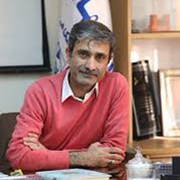Speakers

Hossein Baharvand
Place of Birth : Iranian
Born : 1972
Position : Director, Royan Institute for Stem Cell Biology and Technology, Iran
Field of study : Organoids, Pluripotent stem cells
Prof. Hossein Baharvand is a distinguished Professor, founder, and director of the Royan Institute for Stem Cell Biology and Technology, where he first joined in 1995 as a research assistant. He received his B.Sc. in Biology from Shiraz University in 1994, and M.Sc. in Developmental Biology from Shahid Beheshti University, Tehran in 1996. He received his Ph.D. in Cell and Developmental Biology from Khwarizmi University (former Tarbiat Moallem University) in 2004. For the first time, he generated the mouse and human embryonic stem cells (2003) and induced pluripotent stem cells (2008) in Iran. This has enabled his team to pursue many avenues of research into translational research and regenerative medicine. He has focused his research interests on improving the translational research and regenerative medicine mainly through the understanding of Stem Cells and Developmental Biology and Biologically inspired Engineering. He has been working on pluripotency mechanism and pluripotent stem cell differentiation into cardiomyocytes, neural cells, and hepatocytes. He has been making numerous contributions to clinical trials and tissue-specific stem cell transplantation; as well as developing cell manufacturing. He has given numerous tutorials and invited talks in many congresses such as ISSCR (2018). He is the editor of four international books which were published by Springer (2010 and 2012) and John Wiley, USA (2015). He has published more than 400 international peer-reviewed papers. As of March 2020, Google Scholar reports over 12000 citations and h-index 54 to his work. He is currently the editorial board member of eight international journals (e.g., Journal of Biological Chemistry and Scientific Reports from Nature Publishing Group). He has received more than 30 international and national awards including the Islamic educational, scientific, and cultural organization (ISESCO) prize for research in the field of biology (2010). He is also the winner of the united nations educational, scientific and cultural organization (UNESCO, 2014) for research in life sciences aimed at improving the quality of human life with his stem cell research and its numerous applications in regenerative medicine. He was also selected as 20 stem cell person of the year 2017 award nominees hosted by THE NICHE site. Furthermore, he is the winner of the World Academy of Sciences (TWAS) Prize in Biology (2019) for his fundamental contribution to the understanding of how pluripotency and differentiation establish and maintain in stem cells and has been featured as Highly Cited Researcher based on the rank in the global top 1% of scientists in ESI, Web of Science (July 2019). Recently, he has been awarded the top science and technology award in the Islamic world, Mustafa Prize (2019), for his efforts to promote translational research using stem cells with the goal to improve human life. He was elected as a Fellow of TWAS for his outstanding contribution to science and its promotion in the developing world (2020).
Furthermore, he has had several efforts in publicizing stem cell biology in Iran, and in this regard he with his team established a lab entitled "Stem Cells for all" and a "mobile adventure lab" by an equipped bus. The aim of these participatory teaching and learning methods is to motivate and empower learners to acquire the knowledge, skills, attitudes, and values necessary to shape a sustainable future for stem cells and their potentials in regenerative medicine. He has also established the “Annual International Summer School” program since 2010. The participants are trained by invited speakers from abroad to increase international and national interactions and training methods in this field.



